
Blue Transformation - advancing aquatic food systems for people, planet and prosperity
Tuesday, 25th July, 09:30-10:30
Aquatic foods can be crucial for enhancing food security and nutrition, while addressing climate change. Transforming aquatic food systems can increase the supply of nutritious food sustainably, while contributing to decent and equitable employment and community resilience. Blue Transformation acknowledges the need to support the 2030 Agenda by transitioning towards more inclusive, resilient and sustainable aquatic food systems capable of feeding the world’s population amid changing environmental, social, and climate conditions. This event will showcase Members’ initiatives and promote partnerships to progress in the aquatic food domain.
Fisheries and aquaculture have been crucial in the fight against hunger and poverty, with approximately 600 million people worldwide depending on the sector for their livelihoods, and providing 3.3 billion people with almost 20% of their average per capita intake of animal protein. Since 1960 the annual global growth in per capita fish consumption has doubled, reaching 20.2 kg in 2021. Estimates indicate that implementing Blue Transformation could increase the per capita consumption of sustainable aquatic foods by 25% by 2050. However, failure to transform could see a 10% reduction, placing land-based food systems under increasing pressure.
The session will focus on the following questions:
- What action have countries already taken to transform aquatic food systems and to ensure that sustainable fisheries and aquaculture can deliver sufficient, safe and nutritious food equitably?
- What are the priorities and next steps for a full aquatic food system transformation?
This event will highlight key national initiatives aimed at transforming aquatic food systems. Speakers and panelists will discuss how technical solutions, adequate policies and innovative partnerships can drive a Blue Transformation agenda to achieve sustainable and resilient aquatic food systems that can nourish and feeding the world’s population while also promoting nature-positive solutions. It will emphasize the need for accelerated action and commitment from governments, local communities, and the private sector, to work together towards sustainable and more resilient aquatic food systems for a more sustainable future.
Ministerial Statements
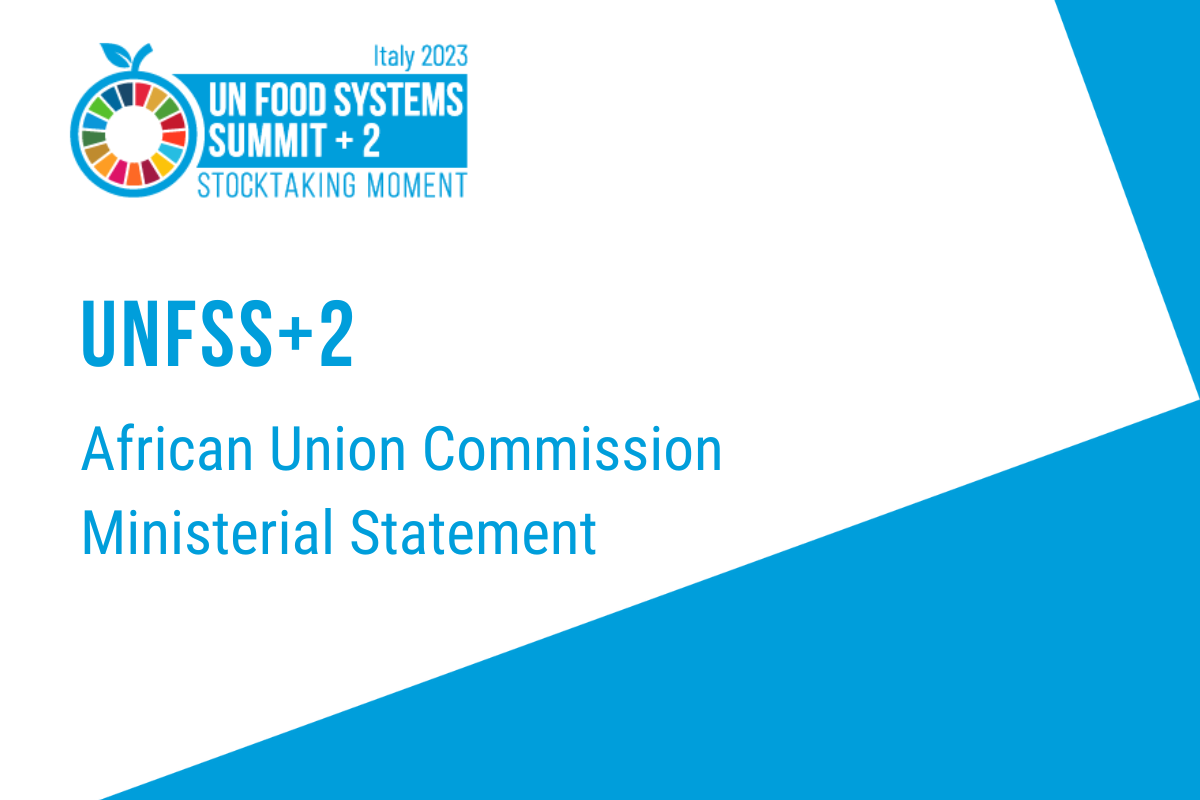
African Union Commission
UNFSS+2 Ministerial Statement
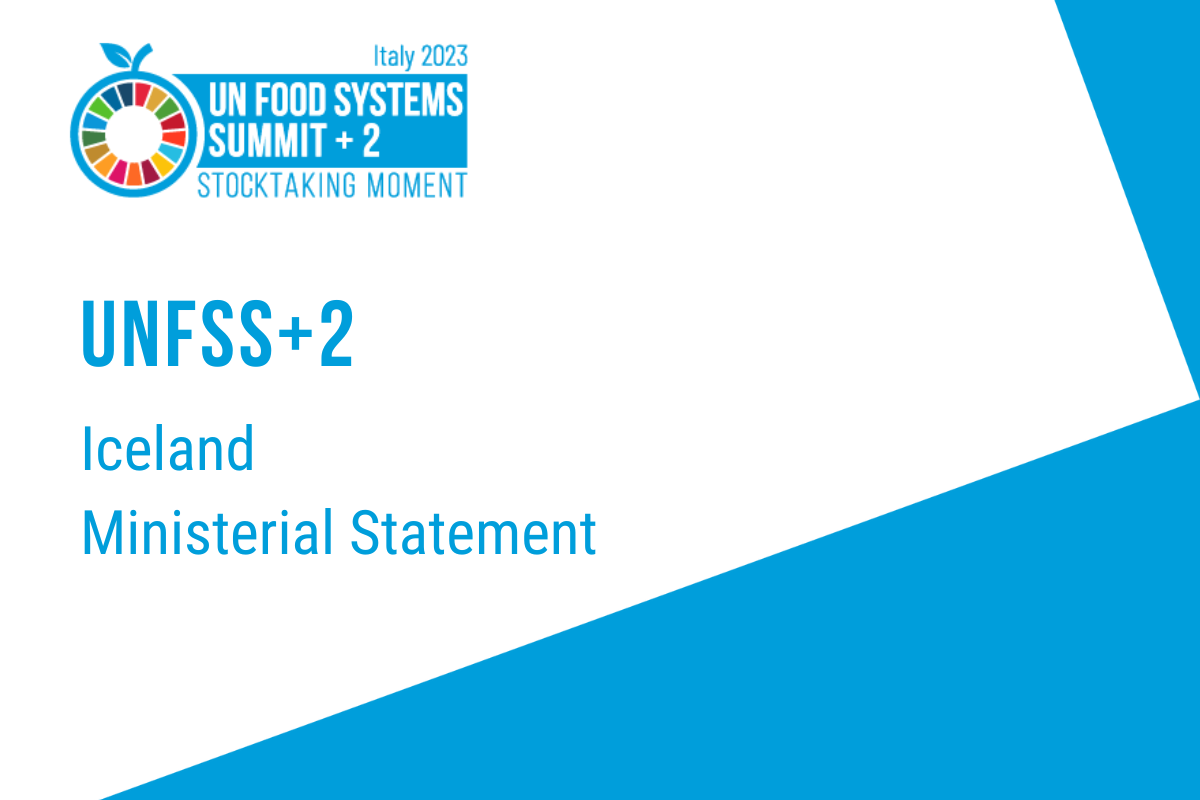
Iceland
UNFSS+2 Ministerial Statement
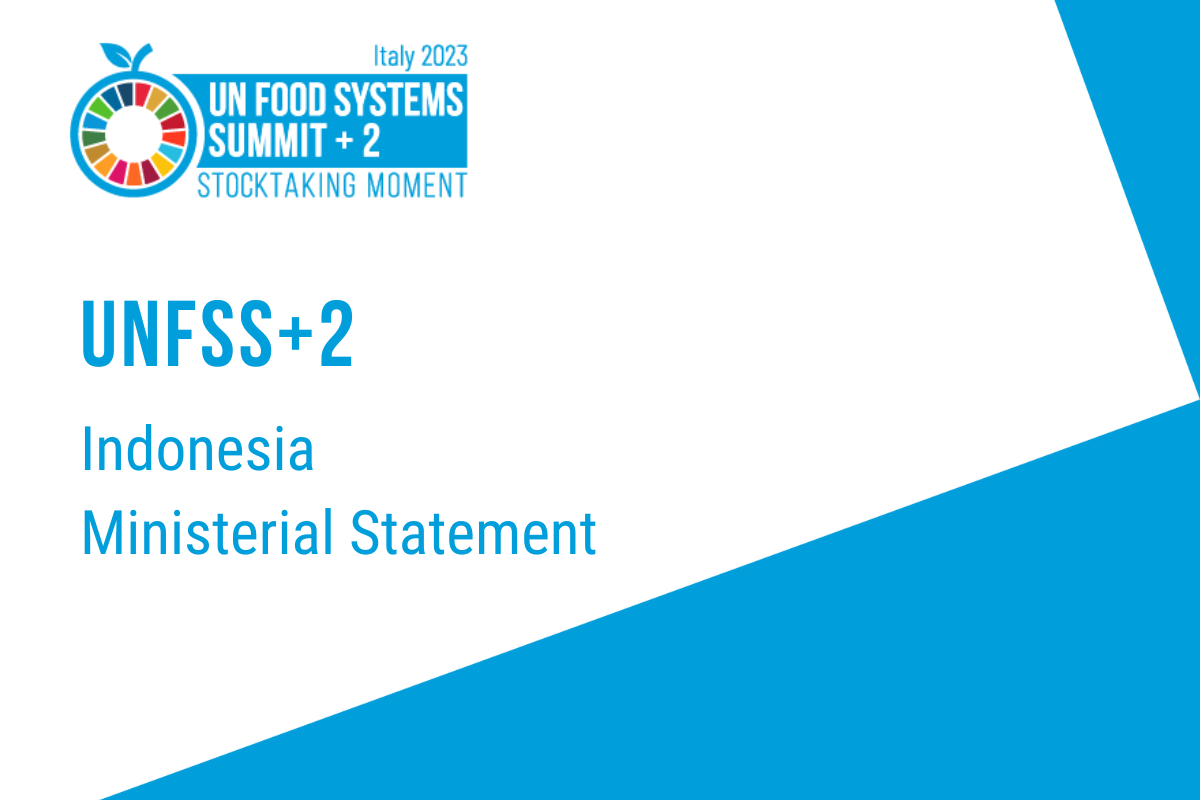
Indonesia
UNFSS+2 Ministerial Statement
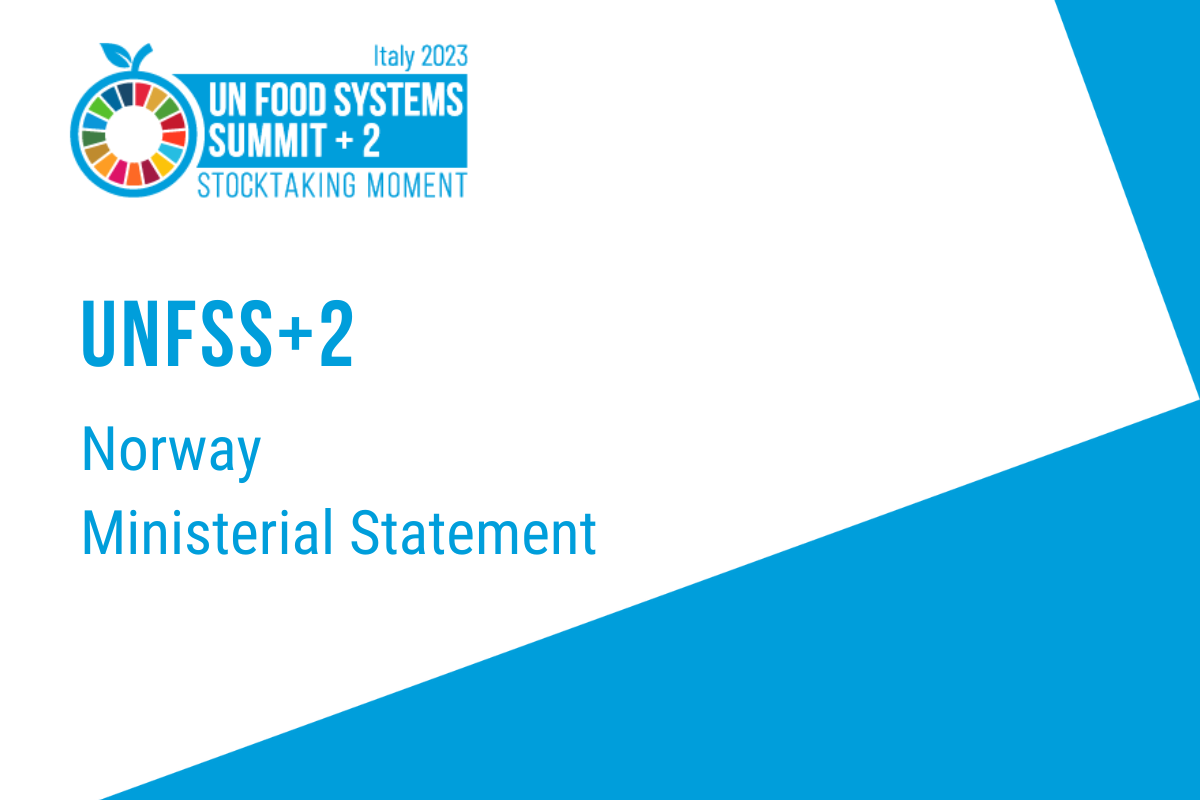
Norway
UNFSS+2 Ministerial Statement
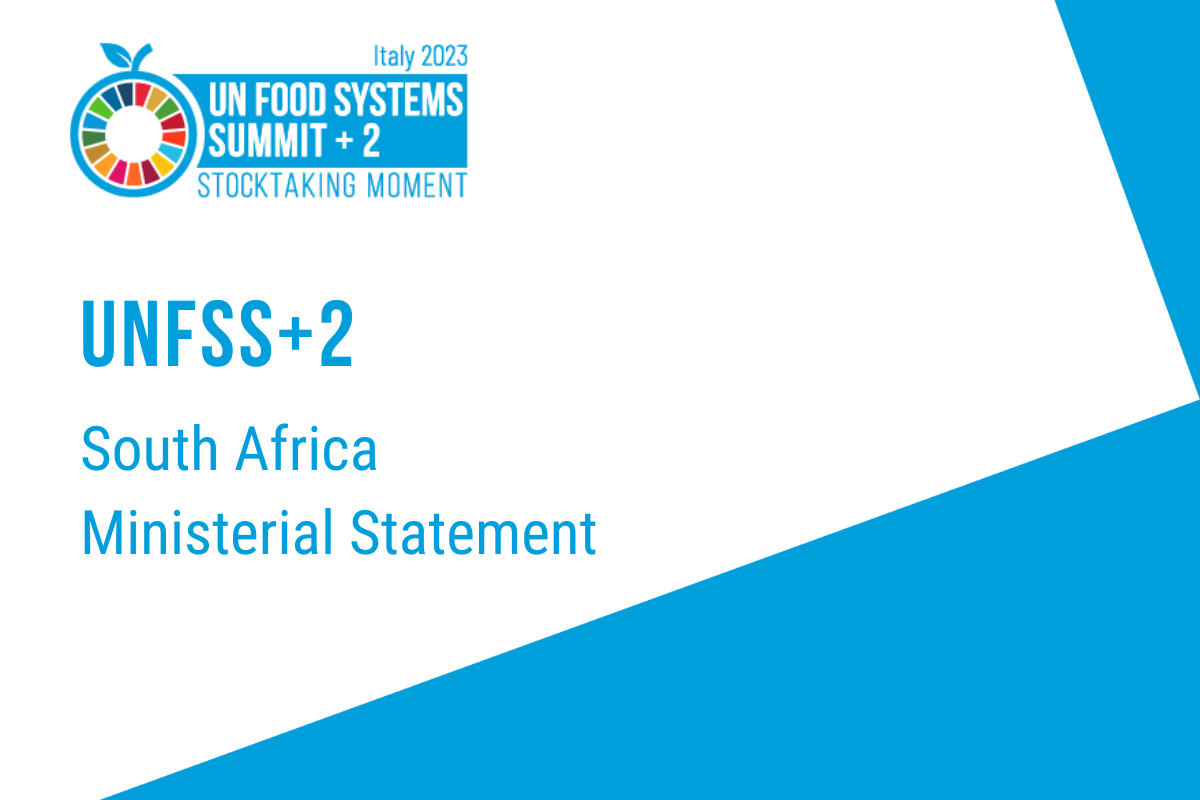
South Africa
UNFSS+2 Ministerial Statement
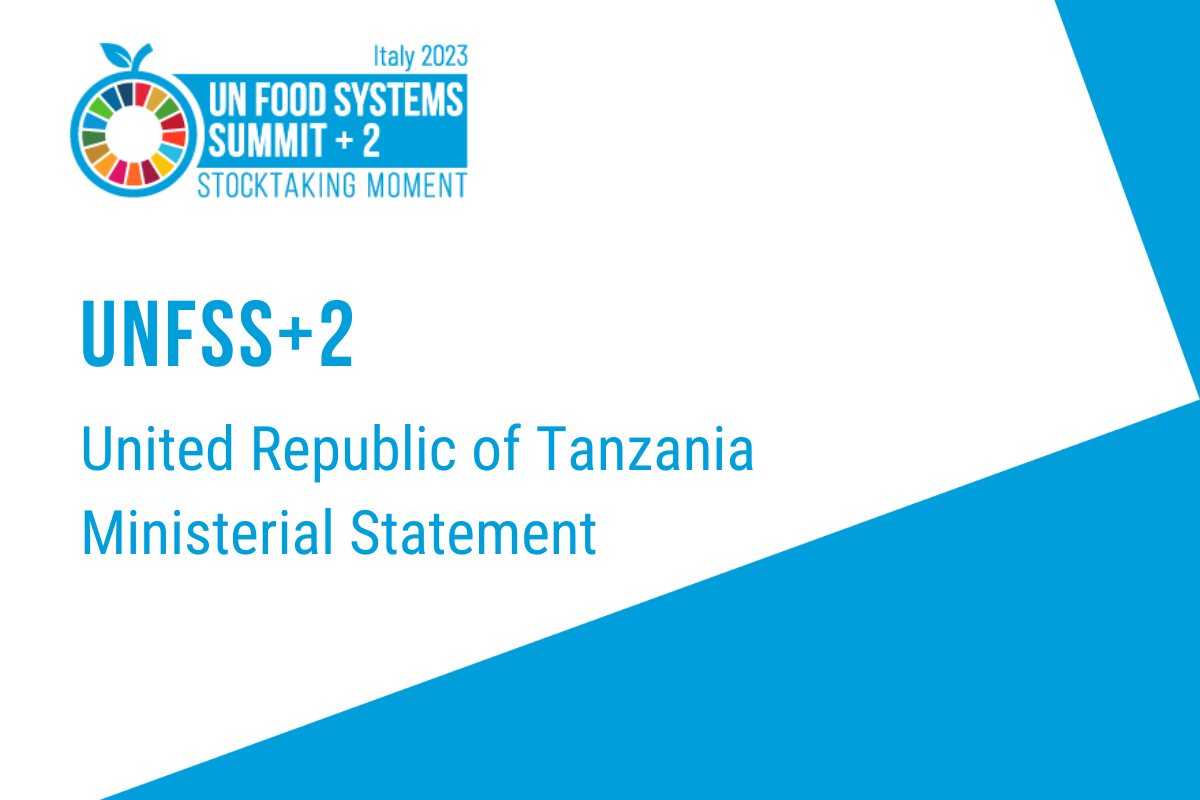
United Republic of Tanzania
UNFSS+2 Ministerial Statement
Speakers
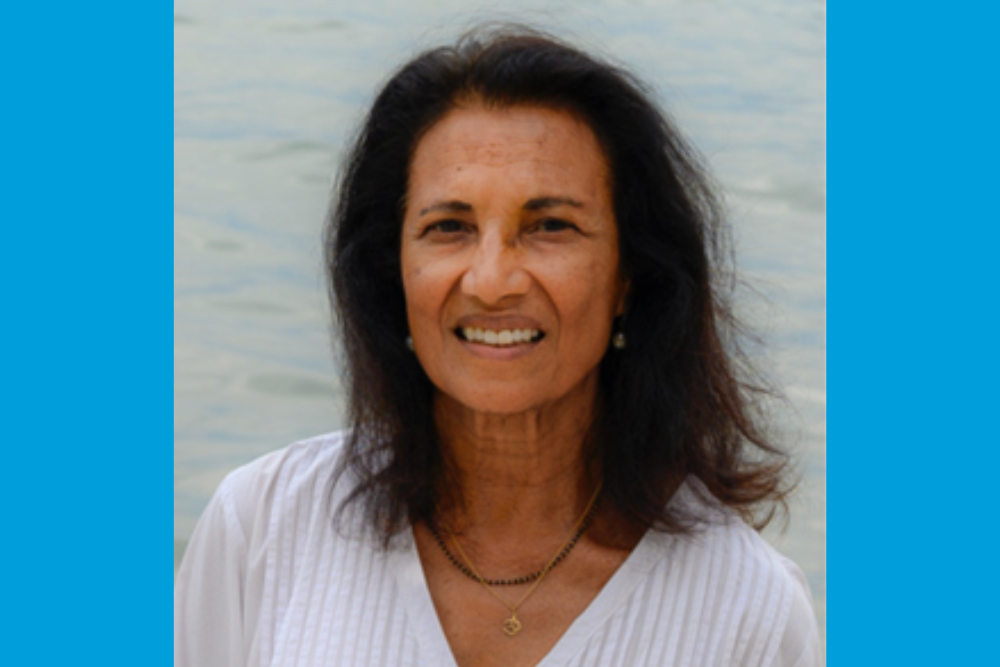
Ms. Shakuntala Thilsted
Director, Nutrition, Health Food Security Platform, CGIAR
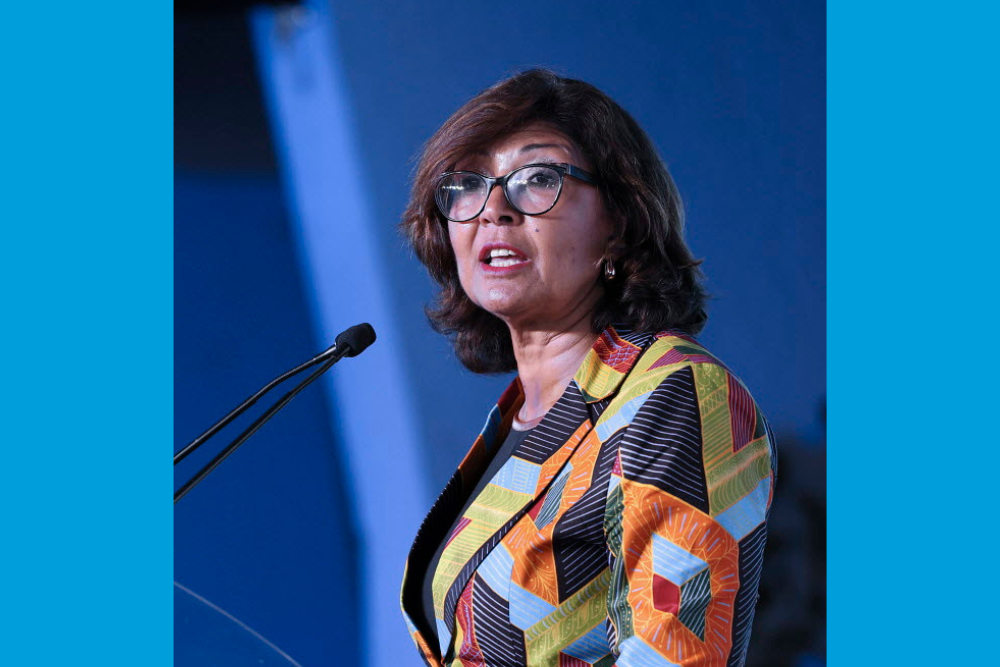
Ms. Maria Helena Semedo
Deputy Director - General Food and Agriculture Organization of the United Nations (FAO)

H.E. Mr. Stefan Hafstein
Special Envoy for the Ocean, Aquatic Blue Food Coalition

H.E. Ms. Josefa Leonel Correia Sacko
Commissioner for Agriculture, Rural Development, Blue Economy and Sustainable Environment, African Union Commission (AUC)
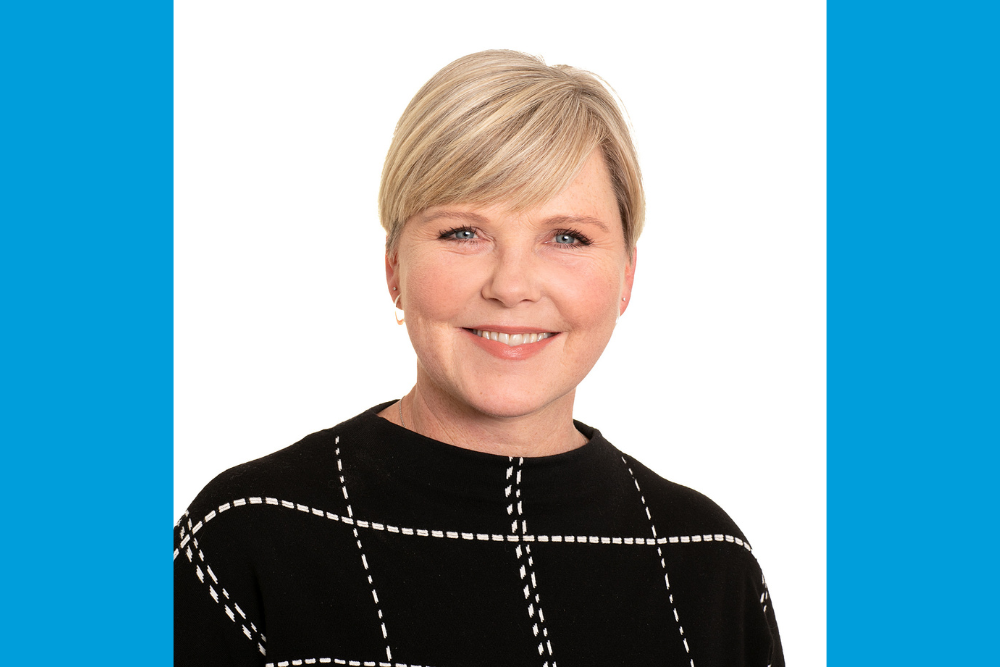
H.E. Ms. Anne Beathe Tvinnereim
Minister of International Development of Norway
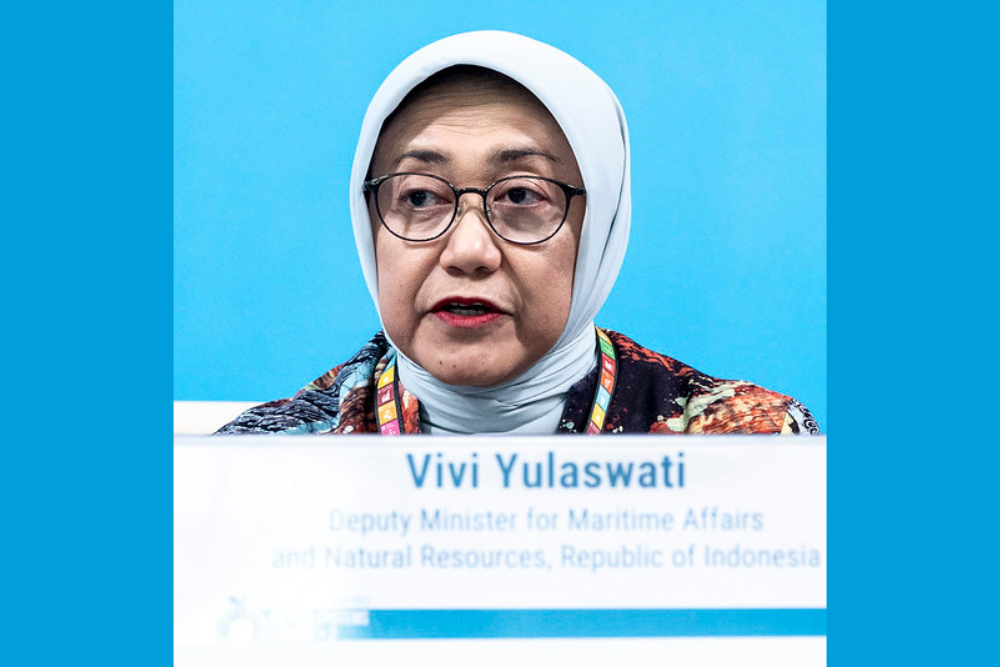
Ms. Vivi Yulaswati
Deputy Minister for Marine Affairs and Natural Resources, Republic of Indonesia
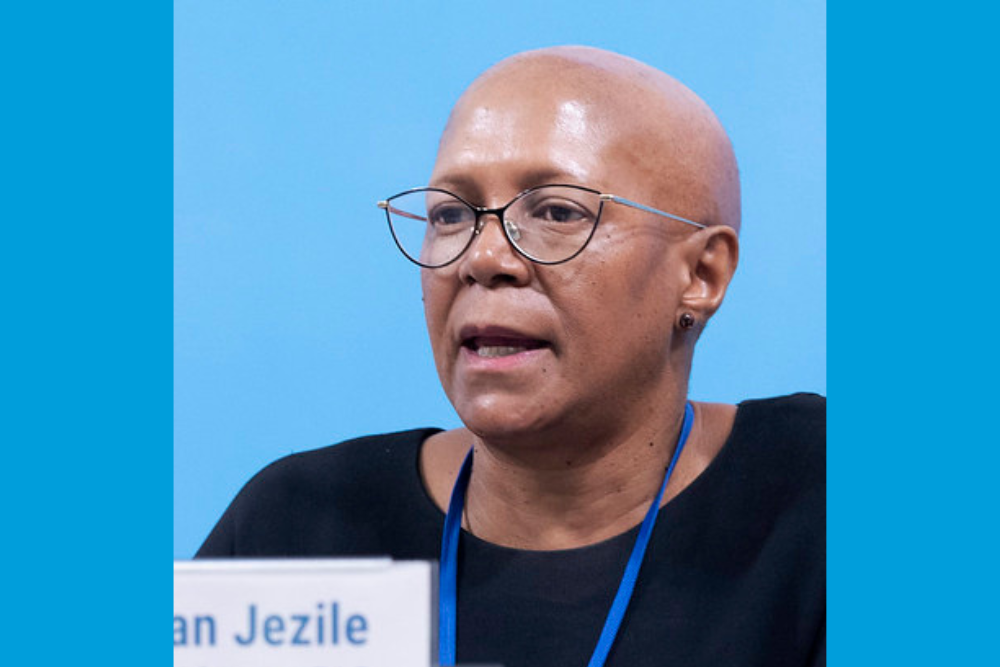
H.E. Ms. Nosipho Nausca-Jean Jezile
Ambassador of the Republic of South Africa to FAO
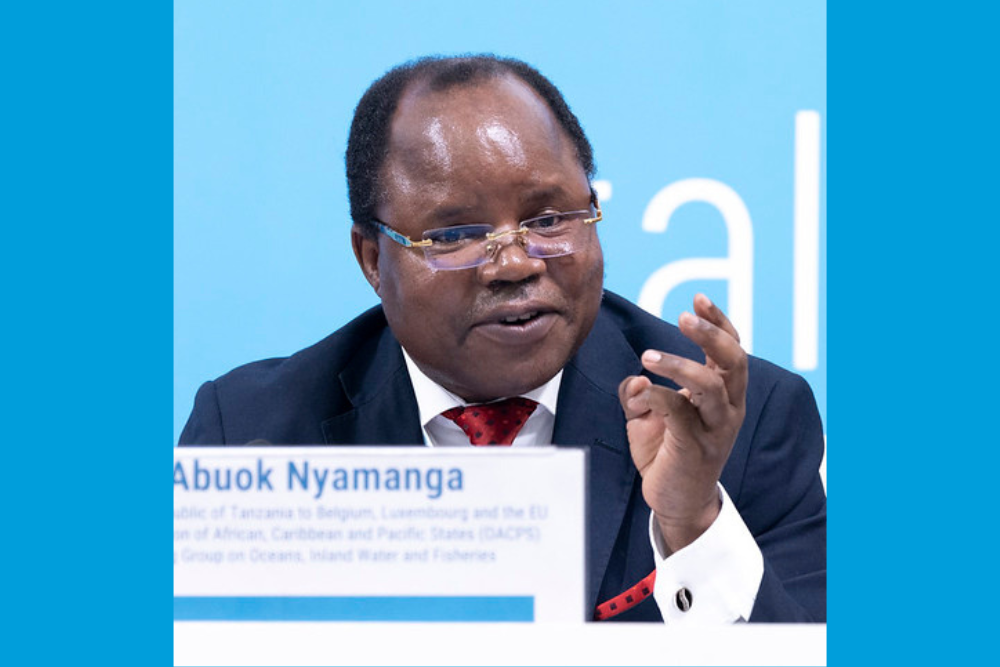
H.E. Mr. Jestas Abuok Nyamanga
Ambassador of the United Republic of Tanzania to Belgium, Luxembourg and the European Union Chairperson, OACPS Ambassadorial Working Group on Oceans, Inland Water and Fisheries

Mr. Gonzalo Munoz
UNFCCC COPP 25 High Level Climate Champion
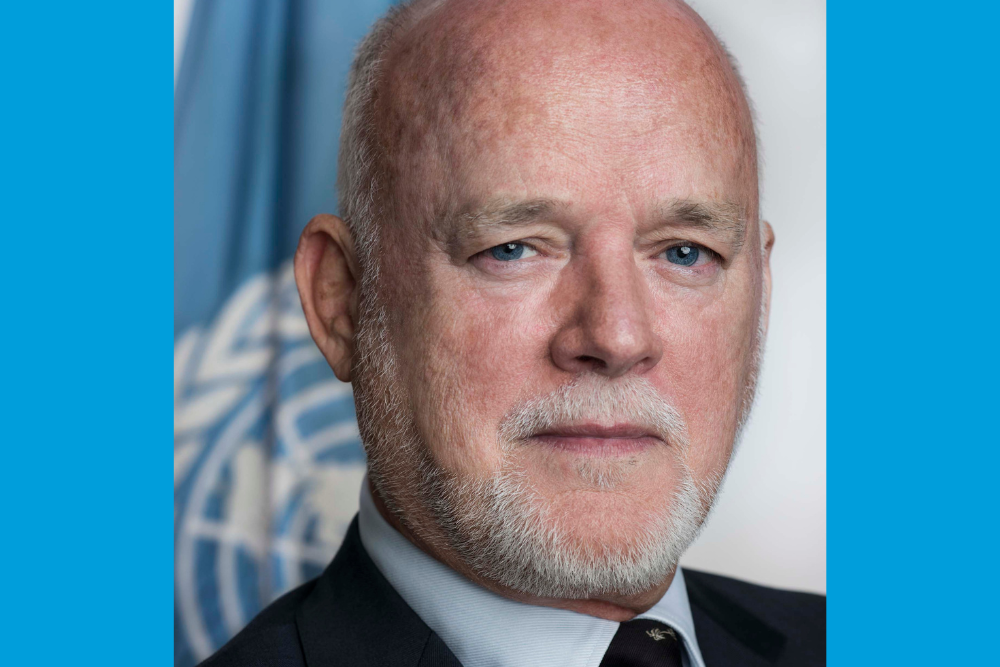
H.E. Mr. Peter Thomson
United Nations Secretary-General’s Special Envoy for the Ocean
Interventions from the floor
- Representative from the European Commission
